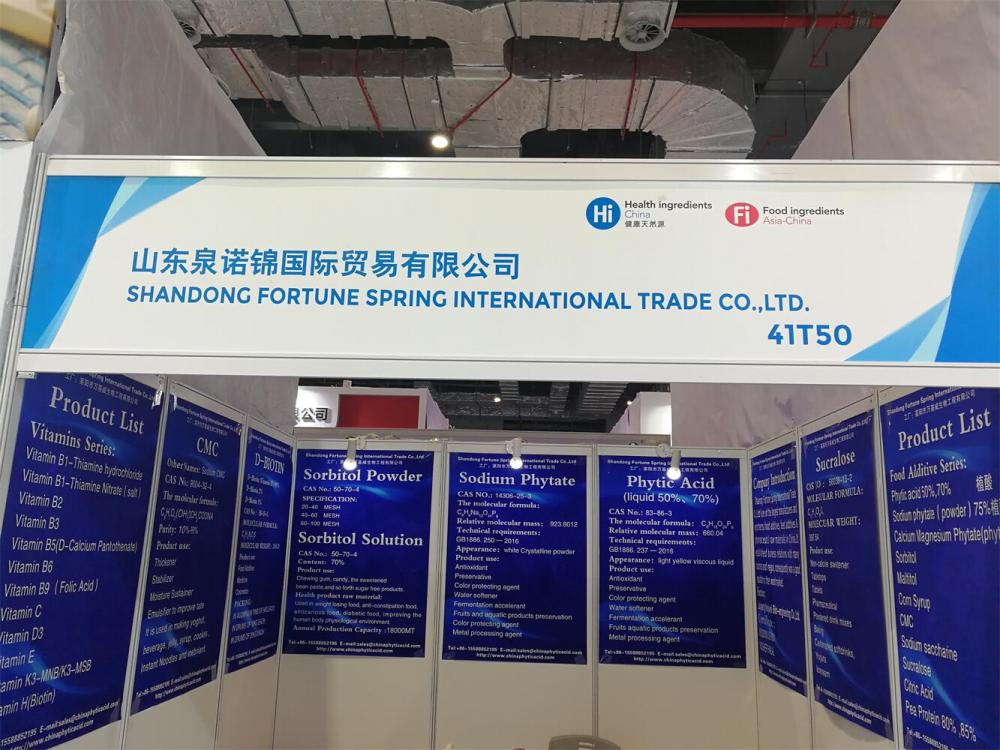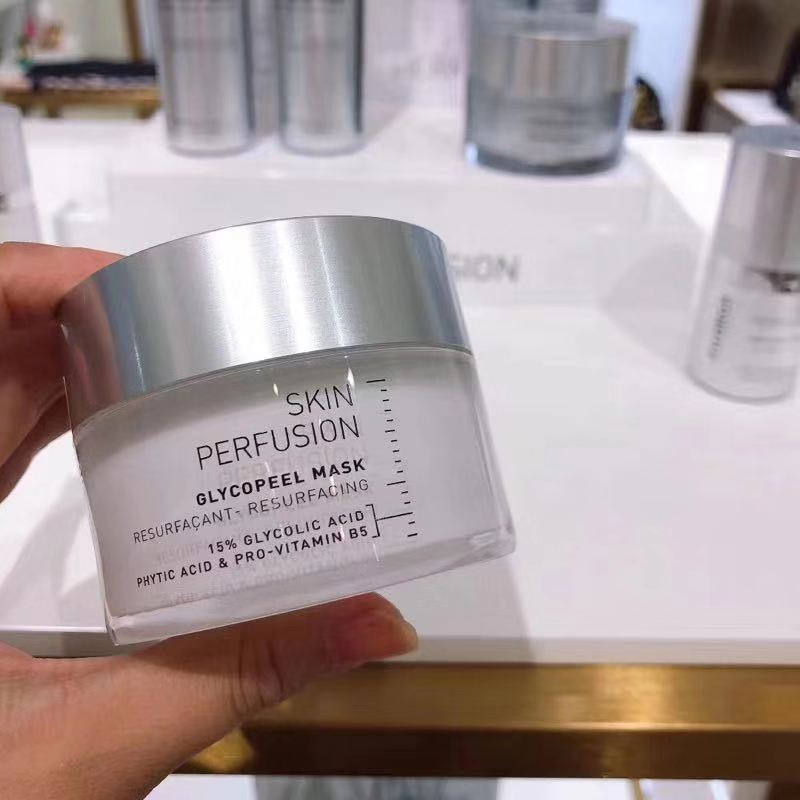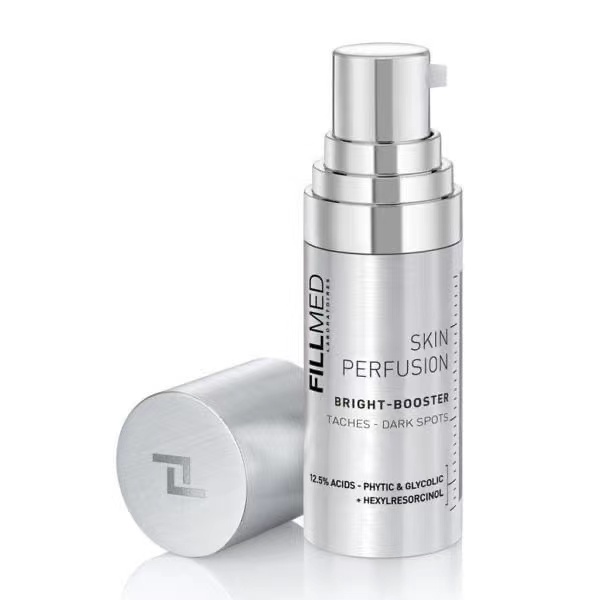1 / 3
化粧品で使用されるフィチン酸
$20.00
≥500 Kilogram
$18.00
≥2000 Kilogram
$17.00
≥5000 Kilogram
$16.00
≥10000 Kilogram
Options:
| Model No. : | 50% |
|---|---|
| Brand Name : | Lingxian |
| place of origin : | China |

製品説明
1 Whitening and removing spots: Phytic acid is used as a raw material for whitening and removing spots, and its effect is relatively good, and its effect can replace hydroquinone (low addition amount). Phytic acid can complex copper ions required for tyrosinase. Another possibility is that phytic acid has a strong affinity for positively charged tyrosinase proteins. Of course, the mild keratin peeling effect is also very conducive to freckle and whitening.
2 Anti-free radicals: A very important reason for skin aging is the oxidative damage of free radicals to human skin. Free radicals are called the culprit of skin aging. Human body's own aging, sunlight, air pollution, etc. all make the skin produce free radicals. The important cause of some cancers in the human body is the damaging effect of free radicals. Many foreign companies have developed phytic acid as anti-cancer, anti-cancer drugs and health products. Sunscreen, anti-aging, anti-inflammatory, repair and other types of cosmetics should have strong anti-free radical effects. In the past, reducing materials were often used as raw materials, such as VC derivatives and polyphenol products, many of which were not very stable and discolored, while phytic acid was much more stable.
3 Oral hygiene products: Use the complexing ability of phytic acid (salt) to prevent tartar and pigment from depositing on teeth. It is very common to add phytic acid (salt) to oral products such as toothpaste in foreign countries.
4 Prevent rancidity and deterioration of unsaturated oils: cosmetic oils often use oils containing essential fatty acids (such as evening primrose oil). The fatty acids of these oils often contain two or more double bonds, which can easily cause oxidative rancidity. It is very common to add a little (0.02-0.4%) phytic acid as an antioxidant in vegetable oils in the food industry.
5 As an antioxidant stabilizer for reducing substances: Reducing raw materials are often used in cosmetics, such as VC, kojic acid, and polyphenols. The pharmaceutical industry has adopted phytic acid as an antioxidant stabilizer in the production process of some pharmaceutical products (such as vitamins). Of course, the process conditions are different, and the oxidation process is also complicated. Specific applications in the cosmetics industry need to explore the best conditions according to the specific conditions.
6 Other applications: 1. Prevent the formation of dandruff. There have been many reports that phytic acid can prevent the formation of dandruff. Phytic acid does not have anti-fungal properties, which may be due to its gentle peeling effect on the scalp; 2 As a stable hydrogen peroxide and peroxide The important reason for the instability of peroxides is the catalytic decomposition of divalent and trivalent metal ions. Phytic acid can stabilize peroxides such as hydrogen peroxide as a strong complexing agent; 3 complexes heavy metal ions such as mercury and lead on the skin .
製品一覧
I. Cosmetic Ingredients :
1. Phytic Acid
2. Sodium Phytate(Powder)
3. Sodium Hyaluronate (Hyaluronic Acid)
4. Panthenol
ii。 Food Additive Series:
1. Phytic Acid
2. Sodium Phytate(Powder)
3. Calcium Magnesium Phytate (Phytin)
4. Sodium Saccharine
5. Natural Menthol Crystal
iii。 Vitamins Series:
1. Inositol
2. Vitamin C
3. Vitamin B9(Folic Acid)
4. Vitamin B1-Thiamine Hydrochloride
5. Vitamin B1-Thiamine Nitrate(Salt)
6. Vitamin B2 (80%)
7. Vitamin B5 (D-Calcium Pantothenate)
8. Vitamin B6
9. Vitamin H(Biotin)
|
Phytic Acid chemical name |
Inositol Hexaphosphate , Inositol hexaphosphoric acid, Fytic acid |
|
Molecular Formula |
C6H18O24P6 |
|
Molecular Structure |
|
|
CAS NO. |
83-86-3 |
|
HS NO. |
2919900090 |
|
Technical Requirements |
GB1886. 237 — 2016 |
|
EINECS NO. |
201-506-6 |
|
Packaging |
25kg/plastic drum. |
|
Appearance |
Pale yellow or light brown viscous liquid |
|
Physical and chemical properties |
Non-flammable and explosive products, Non-toxic and hazardous products, Non-radioactive chemicals, a certain acid corrosion. |
|
Application |
1. Phytic acid has great chelation ability and is a very good chelating agent. |
|
2. Skin care products made with phytic acid can increase the vitality of skin cells, treat acne, protect skin and promote skin blood circulation |
|
|
3. The shampoo that contains phytic acid has the action that fight bacterium, restrain dandruff, stop itching. |



Example: Skin care products containing phytic acid









Production factory introduction
Laiyang Wanjiwei Bio-Engineering Co., Ltd. was established in 1997 and is located in Laiyang De
1. What is loading port?
Usually is Qingdao or Shanghai or Tianjin.
2. What’s your delivery time
このサプライヤーにお問い合わせを送ってください

















